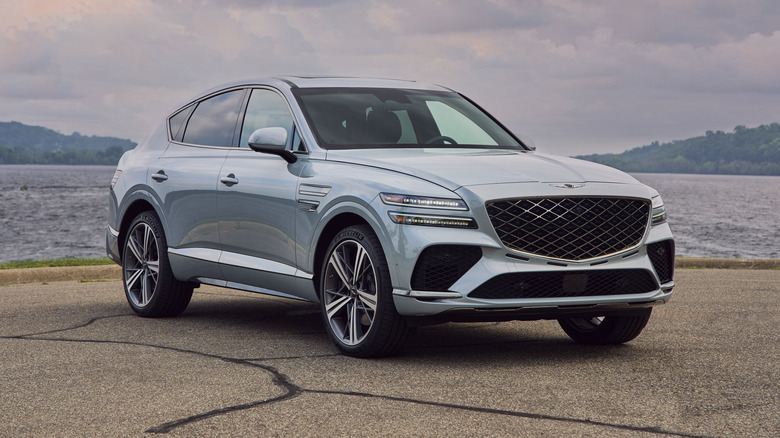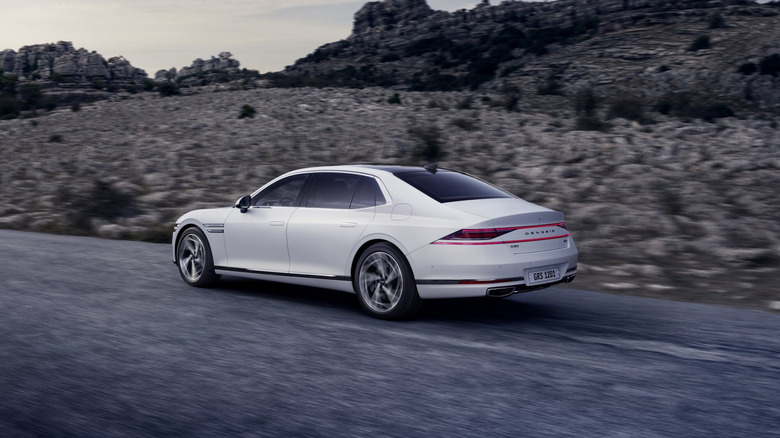Who Makes Genesis Engines And Are They The Same As Hyundai's?
The Genesis brand split off from Hyundai in 2015, becoming its luxury division, and it's been that way ever since. From 2008 to 2015, these cars had been labeled as Hyundai Genesis, a line of luxury vehicles that were sold in Hyundai showrooms. Since going out on its own, Genesis vehicles have been sold in more and more standalone, upscale Genesis dealerships across North America. Total Genesis sales hit the one million mark worldwide in 2023, with a record-breaking 74,930 U.S. sales recorded in 2024.
The engines in Genesis vehicles are made by parent company Hyundai, just as the engines for Hyundai and Kia vehicles are. For economies of scale, this provides a foundational concept of mass production that companies like Hyundai depend on for their profitability, also the reason why Genesis cars are made in the same production facilities. There are some Genesis engines that are used only in Genesis vehicles, however. These include the 3.3-liter and 3.5-liter twin-turbocharged V6 engines used throughout the Genesis lineup, at least the models with internal combustion engines.
When it comes to electric vehicles, however, the Hyundai Group uses a common platform for its EVs. It is likely that other Genesis EVs will receive higher electric motor horsepower outputs than their Hyundai or Kia siblings to differentiate the Genesis brand and its higher price tags.
What else should you know about Genesis engines?
Regardless of where its actual engines are produced, Genesis has been developing high-tech engines that will separate it from the more ordinary mills used in Hyundai and Kia products. One of these is the 3.5T e-SC engine, a 3.5-liter V6 that incorporates both turbocharging and an electrically-powered supercharger. It also uses a high-voltage 48V electrical system and a mild hybrid starter and generator to boost acceleration by providing electric power at low speeds, while recharging its battery through regenerative braking.
The 3.5T e-SC's total output is 409 horsepower and 405 lb-ft of torque, with a level of refinement that was designed to exceed that of the normally aspirated Tau 5.0-liter V8 engine that had been previously used by Genesis in its top-line luxury cars. SlashGear's experience with this engine in the Genesis GV80 Coupe showed that this vehicle had impressive low-speed punch from the electric supercharger.
Of course, the ultimate question is, does it really matter where Genesis engines are made, as long as they are sufficiently differentiated from their workaday Hyundai and Kia counterparts? If Volkswagen AG can make engines used by Volkswagen, Audi, Škoda, and Cupra, is this any different? Not really.

